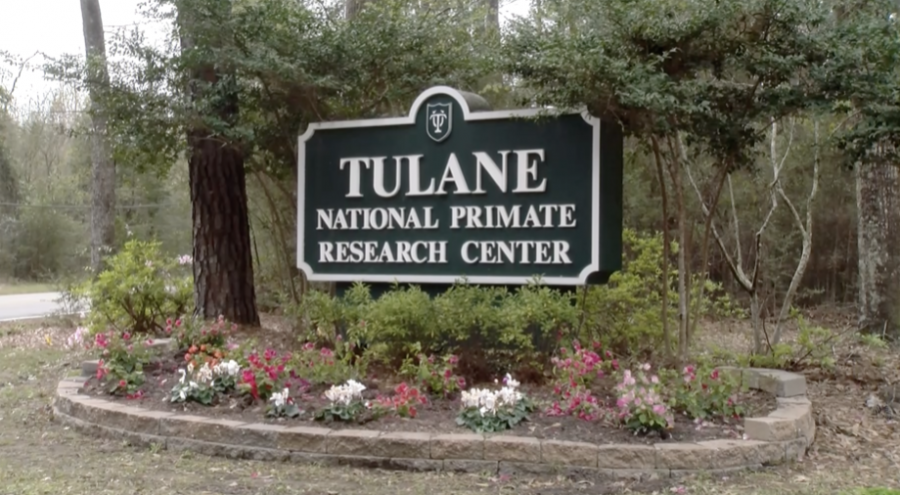Tulane establishes COVID-19 research treatments to develop vaccine
Outside the Tulane National Primate Research Center where researchers are working to develop a treatment for Coronavirus. It could be up to a year before a vaccine is developed. Photo credit: Tess Rowland
March 3, 2020
The state of Georgia reported its first two coronavirus patients, pushing the number of infected people in the U.S. to 105, according to NBC News. This fear and concern has prompted Tulane researchers to bring live samples of the Coronavirus to the Tulane Primate Center on the Northshore, where they hope to find solutions and answer unknowns about the virus.
“Anytime you see a disease spread like this it can be pretty alarming,” said Angie Birnbaum, Director of Biosafety at the Tulane National Primate Research Center.
The research was made possible by grant from the Brown Foundation, and the team is currently seeking public funding.
More than 50 people have been diagnosed with the novel coronavirus within the U.S., excluding those repatriated from China and Japan.
“The first thing we want to do is establish a really good animal model to do our research in, and once we have it we can answer a lot of important questions,” said Dr. Jay Rappaport, Director of Tulane National Primate Research Center.
To develop an animal model the team will infect non-human primates with the virus.
“We want to know how the virus mutates, spreads and how it changes overtime,” he said.
In addition to answering these big questions about the Coronavirus, one of the main goals is to develop a vaccine that eventually could prevent it from spreading.
“With the animal model we will know much more quickly which vaccine works and which should move on to human study,” he said.
Clinical trials can take anywhere from 1-3 years, but there could be some hope to see a vaccine sooner.
“From what I have heard from experts with the FDA and CDC is that people expect a vaccine within a year, so this process may be fast-tracked,” he said.
All of the research is conducted in the Regional Biocontainment Lab.
“Of the seven national primate research centers we are the only one that has a Regional Biocontainment facility, so we have the largest capacity at this biosafety level in the country to do this research, ” he said.
While there may be concern of the thought of having the disease so close to home, Birnbaum encouraged residents not to worry.
“We are incredibly equipped and well poised to be able to work with this at the highest level of safety controls,” she said.
The staff at the facility are required to wear extensive protective gear, and they will be tested regularly for the virus. Birnbaum expressed that the research is in no way a public threat.
“The safety measures that we are taking are far above what you would see in any clinical or lower-containment laboratory,” she said.








